Biography
Garry Kasparov is a Russian pro-democracy leader, global human-rights activist, business speaker and author, and former world chess champion.
Garry Kasparov is a Russian pro-democracy leader, global human-rights activist, business speaker and author, and former world chess champion.
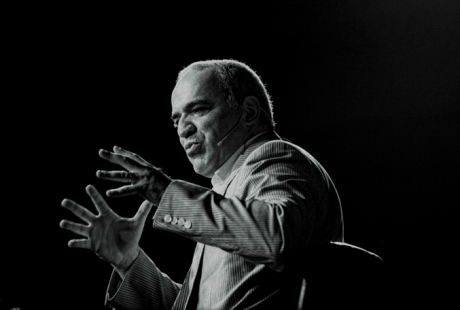
This is the essential element that cannot be measured by any analysis or device, and I believe it's at the heart of success in all things: the power of intuition and the ability to harness and use it like a master
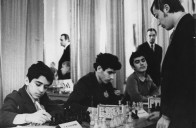
On April 13th, 1963 Garry Kasparov was born Garik Kimovich Weinstein (Russian: Гарик Вайнштейн). He… Read More
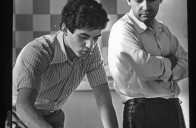
Age 12 in January, Kasparov wins Soviet Junior Championship and repeats one year later.
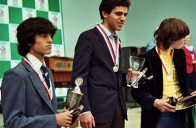
From the age of 12 Garry Kasparov was setting new standards. After becoming the youngest player to… Read More
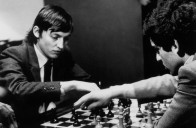
After defeating Beliavsky, Korchnoi, and Smyslov in the candidates matches, Kasparov earned the right to… Read More
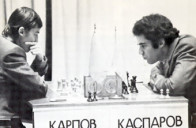
After Campomanes aborted the first match, a rematch between Garry Kasparov and Anatoly Karpov was due to be played… Read More
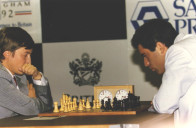
Due to the rematch clause of the 1985 match, Garry Kasparov was forced to defend his title… Read More
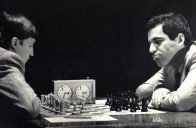
In 1987, the candidates cycle format was changed for the first time since 1965. A… Read More
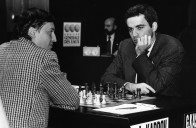
The 1990 WCC match between Garry Kasparov and Anatoly Karpov was held from October 8 to December 30. The… Read More
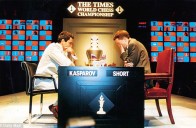
Nigel Short began his chess career as a bona fide prodigy. He defeated Korchnoi in a simul at the age… Read More
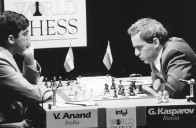
Kasparov vs Anand, 1995 New York City Although stripped of his title by FIDE for… Read More
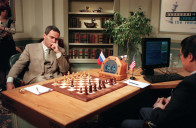
Deep Blue versus Garry Kasparov was a pair of famous six-game human–computer chess matches, in the format… Read More
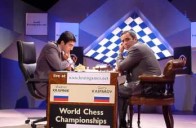
Kasparov vs Kramnik, 2000 London, England Although Garry Kasparov was not recognized as champion by FIDE, the… Read More
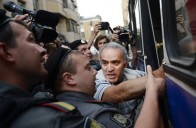
Started The Other Russia Opposition.
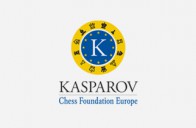
Founded by World Chess Champion Garry Kasparov and Jan Callewaert, driving force behind the European… Read More
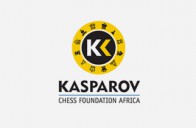
The Kasparov Chess Foundation Africa was officially launched in March 2012 as a public benefit… Read More

Chairman of the Human Rights Foundation In 2012, Kasparov was named chairman of the New York-based… Read More
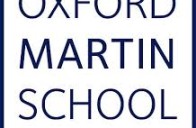
Named Senior Visiting Fellow, Oxford Martin School https://www.youtube.com/watch?v=1zKO_JvGaWo Human + Machine: Intuition and Calculation in a… Read More
Garry Kasparov
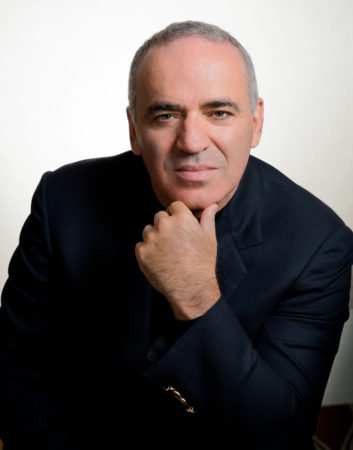 Born in Baku, Azerbaijan, in the Soviet Union in 1963, Garry Kasparov became the under-18 chess champion of the USSR at the age of 12 and the world under-20 champion at 17. He came to international fame at the age of 22 as the youngest world chess champion in history in 1985. He defended his title five times, including a legendary series of matches against arch-rival Anatoly Karpov. Kasparov broke Bobby Fischer’s rating record in 1990 and his own peak rating record remained unbroken until 2013. His famous matches against the IBM super-computer Deep Blue in 1996-97 were key to bringing artificial intelligence, and chess, into the mainstream.
Born in Baku, Azerbaijan, in the Soviet Union in 1963, Garry Kasparov became the under-18 chess champion of the USSR at the age of 12 and the world under-20 champion at 17. He came to international fame at the age of 22 as the youngest world chess champion in history in 1985. He defended his title five times, including a legendary series of matches against arch-rival Anatoly Karpov. Kasparov broke Bobby Fischer’s rating record in 1990 and his own peak rating record remained unbroken until 2013. His famous matches against the IBM super-computer Deep Blue in 1996-97 were key to bringing artificial intelligence, and chess, into the mainstream.
Kasparov’s was one of the first prominent Soviets to call for democratic and market reforms and was an early supporter of Boris Yeltsin’s push to break up the Soviet Union. In 1990, he and his family escaped ethnic violence in his native Baku as the USSR collapsed. In 2005, Kasparov, in his 20th year as the world’s top-rated player, retired from professional chess to join the vanguard of the Russian pro-democracy movement. In 2012, Kasparov was named chairman of the New York-based Human Rights Foundation, succeeding Vaclav Havel. HRF promotes individual liberty worldwide and organizes the Oslo Freedom Forum. Facing imminent arrest during Putin’s crackdown, Kasparov moved from Moscow to New York City in 2013.
The US-based Kasparov Chess Foundation non-profit promotes the teaching of chess in education systems around the world. Its program already in use in schools across the United States, KCF also has centers in Brussels, Johannesburg, Singapore, and Mexico City. Garry and his wife Daria travel frequently to promote the proven benefits of chess in education and have toured Africa extensively.
Kasparov has been a contributing editor to The Wall Street Journal since 1991 and is a regular commentator on politics and human rights. He speaks frequently to business and political audiences around the world on technology, strategy, politics, and achieving peak mental performance. He is a Senior Visiting Fellow at the Oxford-Martin School with a focus on human-machine collaboration. He’s a member of the executive advisory board of the Foundation for Responsible Robotics and a Security Ambassador for Avast Software, where he discusses cyber security and the digital future. Kasparov’s book How Life Imitates Chess on strategy and decision-making is available in over 20 languages. He is the author of two acclaimed series of chess books, My Great Predecessors and Modern Chess. Kasparov’s 2015 book, Winter Is Coming: Why Vladimir Putin and the Enemies of the Free World Must Be Stopped is a blend of history, memoire, and current events analysis.
Kasparov’s next book is Deep Thinking: Where Machine Intelligence Ends and Human Creativity Begins. (May 2017) It details his matches against Deep Blue, his years of research and lectures on human and machine competition and collaboration, and his cooperation with the Future of Humanity Institute at the University of Oxford. He says,
“AI will transform everything we do and we must press forward ambitiously in the one area robots cannot compete with humans: in dreaming big dreams. Our machines will help us achieve them. Instead of worrying about what machines can do, we should worry more about what they still cannot do.”